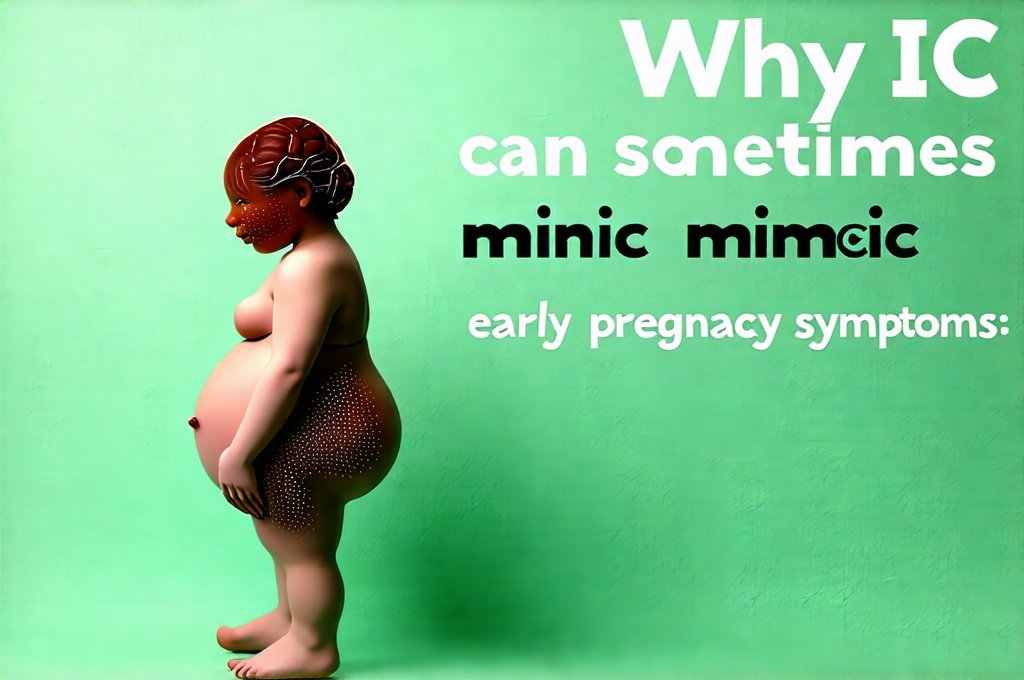The experience of early pregnancy is deeply personal and often marked by significant physical and emotional changes. For those actively trying to conceive, every twinge, shift in hormonal balance, or alteration in bodily function can be scrutinized for signs that a pregnancy has begun. However, sometimes these perceived symptoms are not indicative of a developing embryo but rather the result of complex interplay between the body’s endocrine system and various life factors. Understanding this phenomenon is crucial to avoid unnecessary anxiety and maintain emotional wellbeing when navigating fertility journeys or simply understanding normal physiological function.
Many women report experiencing symptoms strikingly similar to early pregnancy – fatigue, nausea, breast tenderness, frequent urination – before a positive pregnancy test can confirm conception. This can be particularly confusing and emotionally fraught, as it often raises hopes only to lead to disappointment. These symptoms aren’t necessarily signs of a false alarm; they may stem from hormonal fluctuations unrelated to gestation, the effects of stress or lifestyle changes, or even misinterpretations of normal bodily processes. The body is incredibly sensitive, and recognizing the potential for these “phantom pregnancies” – also known as sympathetic pregnancy or pseudocyesis – can provide reassurance and clarity during times of uncertainty.
Hormonal Mimicry & Physiological Similarities
The human endocrine system is a delicate network, where hormones exert profound influence on various bodily functions. It’s not unusual for hormonal imbalances to cause symptoms that closely resemble early pregnancy even in the absence of fertilization. For instance, fluctuations in progesterone levels can mimic some early pregnancy signs. Progesterone rises naturally during the luteal phase of the menstrual cycle – after ovulation – and a sudden drop can sometimes be misinterpreted as a symptom of something else entirely. – Polycystic Ovary Syndrome (PCOS) can cause hormonal imbalances that lead to irregular cycles and symptoms like bloating, fatigue, and even nausea. – Thyroid disorders, particularly hypothyroidism (underactive thyroid), can also produce similar symptoms such as weight gain, fatigue, and changes in menstrual patterns.
Furthermore, the body’s response to stress plays a significant role. Chronic stress elevates cortisol levels, which can disrupt hormonal balance and impact various physiological processes. This disruption may lead to symptoms like nausea, digestive issues, and altered sleep patterns – all of which are frequently associated with early pregnancy. Lifestyle factors also contribute; changes in diet, exercise routines, or even travel can temporarily alter bodily functions and create sensations that mimic pregnancy symptoms. It’s important to remember that our perception of our bodies is subjective, and psychological factors like strong desire for a child can intensify these experiences.
The Role of Psychological Factors & Sympathetic Pregnancy
The mind-body connection is powerful, and the anticipation of pregnancy – or even deeply wanting a child – can profoundly impact how we interpret bodily sensations. Sympathetic pregnancy, also called pseudocyesis, is a rare but well-documented phenomenon where women experience many classic signs of pregnancy—missed periods, morning sickness, breast enlargement, abdominal growth—even though they are not pregnant. This isn’t simply ‘imagining’ symptoms; it’s a genuine physiological response driven by intense psychological factors. – The brain can trigger hormonal changes that mimic pregnancy. – Psychological stress and desire for a child are often key contributing factors. – It’s more common in women who have experienced infertility or loss.
The mechanisms behind sympathetic pregnancy aren’t fully understood, but research suggests it involves the activation of neuroendocrine pathways. In essence, the brain “believes” it is pregnant and initiates physiological changes accordingly. While rare today due to readily available pregnancy tests, sympathetic pregnancy was more common in past eras where confirming pregnancy relied on missed periods and physical signs. Even without reaching full-blown sympathetic pregnancy, a strong desire for a child can lead to heightened awareness of bodily sensations and an increased tendency to interpret ambiguous symptoms as indications of pregnancy. This is why it’s crucial to rely on objective tests like pregnancy tests rather than solely relying on subjective feelings or perceived symptoms.
Understanding Common Misinterpreted Symptoms
Many symptoms commonly associated with early pregnancy can also be caused by other factors, leading to confusion and anxiety. Let’s examine a few:
- Fatigue: While fatigue is common in early pregnancy due to hormonal changes and increased energy demands, it’s also a symptom of many underlying conditions like anemia, sleep disorders, stress, or simply insufficient rest. – Assess your sleep habits and diet before assuming it’s pregnancy related. – Consider getting blood work done to rule out deficiencies.
- Nausea: Nausea is often the first sign many women associate with pregnancy – “morning sickness” – but it can also be caused by food poisoning, gastrointestinal issues, migraines, or even anxiety. – Keep a food diary to identify potential triggers. – Stay hydrated and eat small, frequent meals.
- Breast Tenderness: Breast tenderness is common during the luteal phase of the menstrual cycle due to hormonal shifts and can sometimes persist even after menstruation begins. It’s also related to caffeine intake or changes in bra fit. – Consider if you recently changed bras, as ill-fitting bras can contribute to discomfort.
The Importance of Accurate Testing & Medical Evaluation
The most reliable way to determine whether or not you are pregnant is through a pregnancy test – either a home urine test or a blood test conducted by a healthcare provider. Home tests are generally accurate when used correctly, but false negatives can occur if taken too early in the pregnancy. – Follow the instructions carefully and test again after a few days if you still suspect pregnancy. – Blood tests are more sensitive and can detect pregnancy earlier than urine tests.
If you’re experiencing symptoms that lead you to believe you might be pregnant, but your test results are negative, it’s essential to consult with your doctor. They can help determine the underlying cause of your symptoms and rule out other potential medical conditions. It’s also important to discuss any concerns about fertility or reproductive health with a healthcare professional. – Don’t hesitate to seek guidance from a trusted medical source. – Open communication with your doctor will allow for accurate diagnosis and appropriate care. If you are unsure if menstrual changes are causing symptoms, consult with your healthcare provider.
Managing Anxiety & Emotional Wellbeing
Experiencing symptoms that mimic early pregnancy can be incredibly stressful, especially for those trying to conceive. It’s crucial to prioritize emotional wellbeing during times of uncertainty. – Practice self-care activities like meditation, yoga, or spending time in nature. – Seek support from loved ones or a therapist. – Avoid obsessively checking for symptoms or taking multiple pregnancy tests unnecessarily.
Remember that fertility journeys can be emotionally challenging, and it’s okay to feel frustrated, disappointed, or anxious. Focusing on healthy coping mechanisms and seeking professional help when needed are essential steps in maintaining your mental and emotional health. Acknowledge your feelings, practice self-compassion, and remember you’re not alone in this experience. The body is a complex system, and understanding the potential for hormonal fluctuations and psychological influences can empower you to navigate these moments with greater clarity and peace of mind. It’s important to note that uti symptoms can sometimes be confused with early pregnancy signs, so it’s best to get an accurate diagnosis. If you are concerned about dehydration mimicking UTI symptoms, read more about dehydration.





















